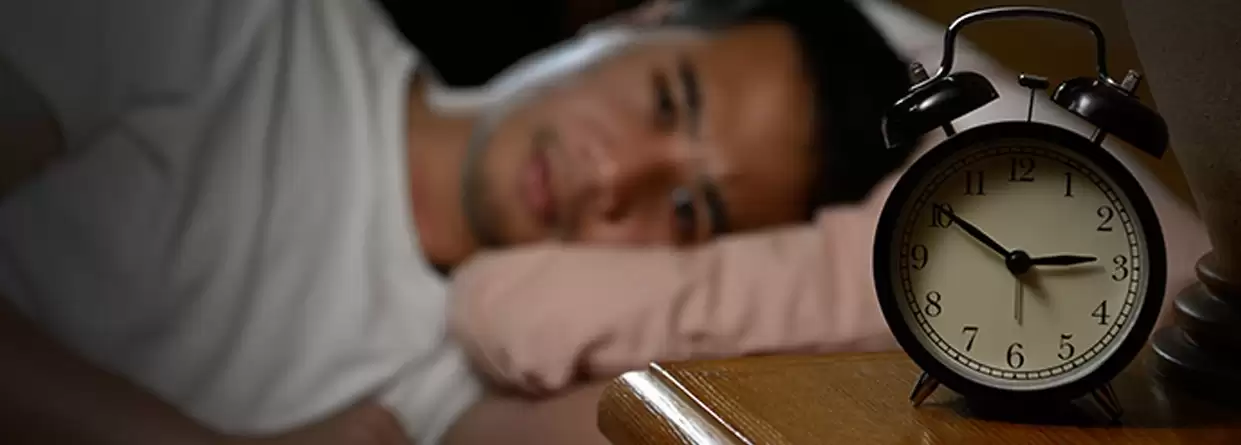Things To Know About Insomnia and Sleep disorder
Pulmonology |
by CMRI | Published on 03/09/2021
Sleep disorder is a condition where the person is unable to have restful sleep on a daily basis. It happens due to changes in sleeping patterns or habits that have a negative impact on general health. The most common sleeping disorders that can prevent a person to have quality sleep include insomnia, narcolepsy, sleep apnea, and restless leg syndrome.
Insomnia is a sleep disorder wherein the person has persistent difficulty falling asleep and/or has a long duration of consolidated or quality sleep. This condition can be either acute (short-term that lasts for one light to a few weeks) or chronic (long-term that can happen at least three times a week for regularly 3 months or more). In some cases, it may occur frequently and go away on its own.CMRI is one of the Best Hospitals in Kolkata where expert sleep doctors provide the best care and treatment for sleep disorders and insomnia.
Sleep insomnia can be of various types such as sleep-onset insomnia (difficulty in imitating sleep), sleep maintenance insomnia (not able to have long sleep duration), mixed insomnia, and paradoxical insomnia (when people underestimate their sleep time).
What are the symptoms of Insomnia?
The most common signs of Insomnia include:
- Feeling sleepy throughout the day
- Always being irritated with the surroundings, complaining more, and being unhappy at all times
- Not able to concentrate or have trouble memorizing things
- Fatigue
What causes insomnia?
Insomnia does not occur due to a specific cause. Some of the primary reasons underlying this condition that isn’t linked to any medical condition include:
- Stressful life situations like the death of a loved one, the breaking of a relationship, the loss of a job, or moving alone
- Surrounding factors like loud noise, powerful lights, or extreme temperatures
- Change in sleep schedule due to jet lag, bad habits, or a new shift at the workplace or home
- Family history
The secondary causes of insomnia could be:
- Problems with behavior or mental health such as stress, depression, and anxiety
- Pain and discomfort experienced in the body at night
- Medical conditions like cancer, arthritis, or heartburn
- Excess intake of tobacco, caffeine, illicit drugs, or alcohol
- Other sleep disorders such as restless leg syndrome or sleep apnea
- Mental health problems such as dementia including Alzheimer’s disease (associated with loss of memory and thinking ability)
- A side effect of some medications for depression, hypertension, colds, asthma, and allergies
- Pregnancy and enlarged prostrate increase the urges to pass urine frequently at night
- Endocrine issues such as Hyperthyroidism
- Attention deficit hyperactivity disorder
- Pre-menstrual syndrome and menopause
It has been found that Insomnia affects mostly women of old age and not much of males and young people.
Can Insomnia be diagnosed?
Yes, the Best doctors for sleep disorders at CMRI conduct a thorough physical examination and reviews the patient’s medical and sleep history. They might be asked to maintain a sleep diary to keep a track of their sleep patterns, waking episodes, and feeling during the daytime. Special tests might also be recommended at the sleep center.
How can insomnia be treated?
Short-term insomnia usually does not need any treatment. The doctor may still prescribe some sleeping pills to help the person sleep peacefully at night. Chronic insomnia requires medical attention for the health conditions that keep the person awake all day. Some of the non-medical treatment options include:
- Behavioral or psychotherapy to learn ways to help promote healthy sleep by identifying the hidden cause
- Changing the medications, their time of intake, or their dosage
- Having better sleep habits by going early to bed and keeping the bedroom dark and quiet at night. People should daily try to go to sleep and wake up at the same time every night and morning.
- Alteration of poor lifestyle habits: Heavy meals, intake of caffeine, alcohol, smoking of tobacco, or use of phones just before going to bed shall be avoided.
- Intake of antidepressants for people with mental health issues
- Relaxation of the mind and removal of stress by doing routine yoga and meditation (especially breathing exercises), listening to music, reading a book, or taking a bath before bed.
- Having a 20 to 30-minute routine to have a moderate level of physical activity like brisk walking, dancing, aerobics, or any other workouts at any time of day makes people sleep better and also increases their energy levels while they stay awake.
For more information contact the expert at CMRI to get the Best treatment for insomnia.

 Emergency No: 08062136598
Emergency No: 08062136598